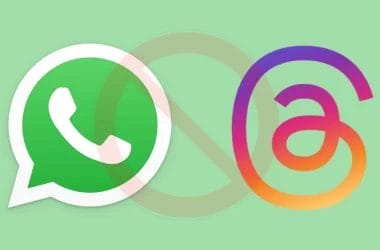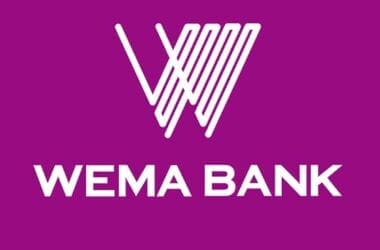It is always so fascinating to watch toddlers and preschoolers swipe effortlessly and tap their tiny-stubby fingers through the touch-screens of smartphones and pads regardless of the brand or version. Seemingly unperturbed and unruffled, they navigate their way through to their preferred apps!
What is rather unfathomable is how they navigate through the promptings, app instructions or terms and conditions, which come with the setup. This is indeed remarkable because most of these pint-sized digital users haven’t thoroughly made it through identifying all their letters in the English alphabet, let alone reading words comprehensively which as you know, both constitute the fine print that guide the usability of these smart devices. You’re then forced to ask or wonder how we got to this stage in the world. A common assumption is usually hinged on these “whiz babies” coming after the iGeneration age (a term for children born between 1995-2012; a time when internet was commercialised), or that they are now literally surrounded by these smart devices.
Technology today is a source of learning and entertainment to children. Some benefits of these devices include: children having access to drawing game apps, puzzles, e-books, research, online math games and language skills improvement which help to stimulate the brain, provide research material for homework or even video calls for parents are out and children are left with the help – or even with grandma.
With the concern of parents and experts on children and the use of technology in these smart devices, and an established fact that improvement in educational performance of young children would be through the use of technologies, most technology companies have sought the need to act. As evidenced, there has been the introduction of educational and e-learning products on many of these devices provided by telecommunication companies in Nigeria such as the then Etisalat’s CliqLiTe, MTN’s Education Bundle, Airtel’s SmartTRYBE Junior, Globacom’s Mobile Junior and Nigeria’s foremost technology company, Zinox Technologies Ltd’s Kids Legacy Tab. Efforts have also been made by YouTube on its most recent update on its YouTube for Kids, as well as The African Children Cyber Safety Initiative (ACCSI).
Thus, it can be agreed that children need information but also need direction and guidance.
On this TechCity Children’s Day Special, we discuss technology with regards to children and education in Nigeria.
Nigeria, Africa’s most populous country and seventh most populous country in the world is home to 180 million people. More than 60 percent of the country’s population is under the age of 24 and about 44% of the country’s population was reported to be below the age of 15. What is referred to as a Youth Bulge.With such young and teeming population, education is priority – or should be.
In Bill Gates speech on Human Capital Development in March earlier this year, he emphasized the need for the government to prioritize education and health, arriving at an inescapable conclusion that “Nigeria’s economy tomorrow depends on improving its schools today”. So, what does the Nigerian education system look like?
Nigeria’s education system encompasses three different sectors: Basic education (nine years), Post-basic/senior secondary education (three years), and Tertiary education (four to six years, depending on the program of study). Asides English and Mathematics we know to be compulsory subjects in the Nigerian school curriculum, The Nigeria Educational Research and Development Council (NERDC) makes Basic Science and Technology (BST) a core subject from primary to junior secondary level and Technology and Science & Mathematics (two separate subjects) in Senior Secondary School. The Universal Basic Education guidelines implemented in 2014 also includes Basic Science and Basic Technology as core subjects in Secondary schools, with the motive of this incorporation in the new curricula targeted towards improving vocational training presence in schools and hopefully increasing employability of high school graduates considering high youth unemployment in Nigeria.
In recent times, educational experts have canvassed the need and importance for African children to be active participants in using ICT to drive change and accelerate development as developing nations will need more than orthodox initiatives to bridge the huge learning gap.
That would bring us to what STEM Education is?
STEM (Science, Technology, Engineering and Mathematics) education is based around finding a solution to a real-world problem and tends to emphasize project-based learning; ensuring students understand the connection to the real world. According to Albert Einstein, “Education is not about learning facts, but the training of the mind to think”.
A variation of this called STEAM where the ‘A’ stands for art and design, also exists. This is because education experts have come to understand the importance of artistic design, which has been discovered to be an important part of STEM education since creativity is an essential part of innovation.
The STEM method of teaching can be incorporated into any subject.
One may be quick to conclude about STEM and all things technology as being only practical in privileged schools and seem a bit far fetched in application to public schools; especially in rural Nigeria where it is reported that more than half of rural Nigerian children can’t read and write. There has however also been the incorporation of digital tech to improving access to education in some public schools and rural Nigeria. Some excerpts of Patrick Egwu Ejike’s entry which won the 2016 Digital tech Haller 2nd place prize for Development Journalism sheds some light on Northern Nigeria.
In North Eastern Nigeria, where millions of children are out of school due to the insurgency, an organization is determined to deploy technology in improving learning outcomes of these children and bridge the gap in digital literacy between the elite and lower level class children.The American University of Nigeria, Yola (AUN’s) contribution involves the deployment of digital technologically savvy teachers and volunteers to train displaced children to use technology to continue education in preparation for their chosen fields. Their contribution to the development, involves the use of sophisticated gadgets with installed instructional and educational apps in classrooms of these children.

They wouldn’t be the first to lay the foundation for digital education at the local level though.
The Government of Osun State in the South Western part of Nigeria would be the first in the country in 2013 to implement a plan regarding substantial exposure of school children to tech education and the first to implement the UNESCO recommendation on digital education. In 2013, the Osun State Government launched a set of 150,000 units of specially adapted computers (tablets) known as ‘Opon-imo’, which means “Tablet of Knowledge” in Yoruba language, aimed at equipping schools and enhancing learning in schools, particularly at the secondary level. The scheme would also include training teachers to use digital media in education.
Down south in the South Eastern part of Nigeria, the application of digital education is also in swift motion using mobile apps across classrooms in the rural areas. In Community Secondary School, in Ezeagu local government area of Enugu state, it was reported that through the help of a telecommunications firm, students had their mobile phones connected to a nearby Wi-Fi and were taught using different mobile instructional materials.
It would be important to highlight at this juncture that the adoption of digital education in Nigeria isn’t without challenges and is thus majorly responsible for the slow-paced application of this method of teaching, such as teachers not being ICT savvy and inadequate teaching facilities; making it difficult for digital information transfer to take place between teachers and students. Also, low funding in budgetary allocation and otherwise of the education sector reflective in low salary pay of teachers poses a major challenge to attracting and keeping STEM experts or specialists in this field to our schools.
Global competitiveness
The good news however is that since the start of the double-digit millennium years, tremendous efforts have been made by stakeholders regarding the promotion of STEM and Tech education in Nigeria. This would be evident in major annual competitions and summits across the country including the Nigeria Computer Society (NCS) National IT Whiz Kids Competition, Schools Computer Club Summit organized by the Schools Computer Club Initiative (SCCI) and National IT Competition for Children.
In 2017, seven young Nigerian students (4 boys and 3 girls) alias RoboTeens, led by the project coordinator Mrs. Remi Willoughby and two other coaches, represented Nigeria at an Olympic-style, STEM based, FIRST (For Inspiration and Recognition of Science and Technology) Global Robot Challenge. Competing against 163 other nations (including 6 continental teams) in Washington DC, USA to come 25th overall, and 3rd of the 40 African countries that will participate. These students who were picked based on their interest and performances in robotics competition, locally and internationally from public and private secondary schools across Lagos, were reported to have mastered the rudiments of robotic design through tutorials in math, physics and engineering and programming languages like Java.
Coding
Coding activities have become more popular with Nigerian children, as experts have canvassed the importance of children being exposed to early coding activities, spotting that children have the brightest minds for these activities which would play a role in determining the socio-economic development of a nation. A most prominent incident that paints a picture about children and coding in Nigeria and a very popular one at that would be Facebook Founder, Mark Zuckerberg’s visit to the Co-Creation Hub in Lagos in 2016, where he addressed and was pictured with school children aged 5-18 years who were on a “Summer of Code”digital learning programme of the re:learn by Cc-HUB. Amazed and impressed by the proficiency of the children, he described Nigeria’s tech industry as the “next big thing” in Africa.
Coding in Lagos state took a step further in 2017 when a 6-week ‘Summer to Code’ training for children aged 4-18, was organised for the children in the largest local government area in Lagos state; Alimosho Local Government Area, by an educational and content development firm. The training encompassed teaching children on how create basic websites, and understand the concept of mobile apps design, development and deployment.
CodeSpark Nigeria in GRA and Audax CodeSchool in Lekki, Lagos for primary and secondary schools are centres also set up to teach coding to children amidst other summer camps and boot camps organised by software companies for children during the holidays.
In the oil-rich South Southern part of the country, Rivers State in April 2018, became the first state in Nigeria where a coding program for children at public schools, primary and secondary section was launched for FREE, courtesy #CodeForSchoolsNG; an initiative of TeenCoders. The state would become the first state to offer it to students beginning at lower primary level (as opposed to Lagos’ beginning from the upper primary level) courtesy of #CodeForSchoolsNG; who believe coding should be made a subject from elementary level across schools in Nigeria.
The organizers of this program would reiterate a fact that 12% of all job openings and 16.3% of all new wages in the developing world are in computing fields as computer science is increasingly foundational to all 21st century careers. More importantly, its aim is to shift the ability of an average pupil/student from not just being a user of technology but a CREATOR of technology.
Rivers state in May of 2018 would again attract coding to its city of Port-Harcourt from an after-school club called Girls Code Club for girls aged 10-17; courtesy of Mind Africa Leadership Initiative.
Also: Start Innovation Hub Kids Code Club in Uyo, Akwa Ibom also in the south southern part, LearnFactory’s EmBED in Aba; the southeast, GIG Innovation Hub in Benin, and travelling to the country’s capital; Algorithms and Scientific Computing Technologies (ASComT) Computer Coding Club for Kids in Abuja.
There should be more to the use of technology…
Since digital education revolution is the future of economic prosperity for the young minds of any nation, then it should also be a powerful educational tool that is far-reaching for destitute children, children living with disabilities or children traditionally marginalized from education.
In response to 209 children released by the then Chief Justice of Lagos, Mrs. Olufunmilayo Atilade in September 2017; highlighting that many while locked up had been deprived of education and access to meaningful activities, the Lagos State Government in partnership with UNICEF, set up a Community Rehabilitation Programme for Children in Conflict with the Law and Children at High Risk of Offending, in a bid to gainfully engage these children and keep them away from going to prison. With UNICEF as a global children’s protection organisation determined to create a situation whereby children are shown a better way of becoming responsible in life, coding activities serve as a useful tool and an avenue for them to gain new knowledge in several ways and thus re-shape their mindsets positively on the endless possibilities in the world of technology and the skills they need for the future.
For children with disabilities who have been largely excluded from efforts to improve education outcomes, digital education can bridge this gap.
In Nigeria for instance, the NERDC; the think tank for education Nigeria which already has an innovative e-curriculum partnership with Sidmach Technologies and a special need education programme, can extend this to meet the needs of children living with disabilities. This would mean better funding by Government and the need for stakeholders in technology or digital education to extend their initiatives in accommodating these groups of children.
As we bask in the euphoria of such wonderful gifts children are in celebration of Children’s Day this year, we should remember that digital education is the future and that future must begin now… and yeah that Marvel Studios for its 10th anniversary, has donated a total of $1.25 million to children charities to help children impacted by serious illnesses. You too can make a positive difference in the life of a child. 😊






